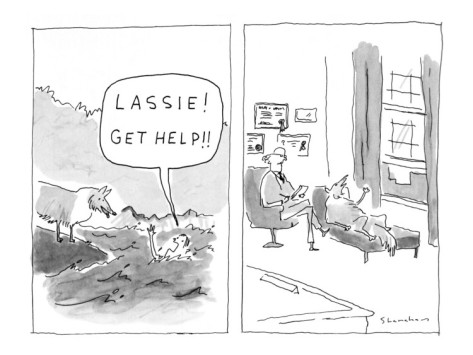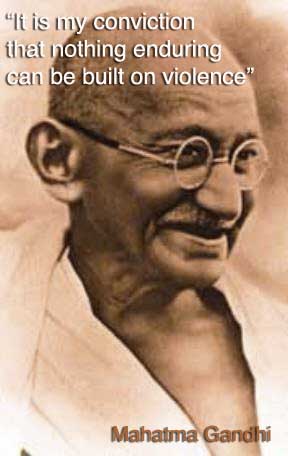How to Give Feedback

I’ve always sought feedback on my work. Not out of a need for reassurance or approbation, but out of a desire to improve. And maybe out of a need for meaningful human connection, too. At least, that’s my story and I’m sticking to it.
I see a lot of other folks asking for, or hoping for, feedback too – mostly with very limited success.
Setting aside the value of effective feedback for a moment – there’s been much written about this, especially in the context of reducing cycle times and shortening feedback loops in software and product development, as well as in organisational change – I’d like to share some ideas on how to give feedback.
“As more and more people learn to offer feedback…the overall dread of feedback-giving can diminish, and feedback can be restored to its fundamental function: a method for people to work together to create environments where productivity flows, where trust and goodwill flourish, and where individuals thrive.”
~ Miki Kashtan
Shortage of Feedback
I don’t get nearly as much feedback on my work as I’d like. Or even as much as I need to improve it. I used to think it was because people are unused to giving feedback, or don’t realise how valuable it can be. Or have worked themselves for so long in organisations where feedback is given so poorly that they want to avoid inflicting the same pain on others (including me).
“Knowing how painful it can be for people to hear a criticism, and how rarely feedback leads to productive conversations or satisfying change, it’s sometimes difficult to imagine that giving feedback can have beneficial consequences. ”
~ Miki Kashtan
Now, though, I’m coming round to the idea that maybe it’s simpler than that. Maybe it’s just that folks are uncertain about how to approach giving feedback. Hopefully this post can make a contribution towards testing that hypothesis – and in addressing that uncertainty, too.
The Perfection Game
For some years now, I have favoured the Perfection Game as the best format I know of by which to give and receive feedback. I commend it to you as a means to focus on the positive, and exclude or reduce negative criticisms.
But it still strikes (sic) me as coercive and violent – what we might call call “life-alienating communication” – both in its giving and its receiving. At least in the terms of Marshall Rosenberg‘s Non-violent Communication.
Non-violent Feedback
This kind of feedback is not just a small change or tweak, but a major realignment of our understanding of what it means to “give feedback”. From expressing “what we think”, to seeking to understand the feelings and needs of all concerned. This may sound like it’s turning each occasion we give feedback into a major piece of work, and it can be – at least until practice reduces the effort involved.
“If we are able to remain open to creating a solution [or improvement] together, instead of being attached to a particular outcome, others can sense that their well-being matters.”
~ Miki Kashtan
Use Positive Action Language
Express what you do want, rather than what you don’t want.
“How do you do a don’t?”
~ from a children’s song by Ruth Bebermeyer
Also, expressing your requests in terms of concrete actions can better reveal what you really want . Avoid vague, abstract or ambiguous phrases:

Ask for a Reflection
The message we send is not always the message that’s received. To be more confident that we’ve been understood when giving feedback, we can ask others – e.g. the listener – to reflect back in their own words what they heard us say. We then have the opportunity to restate parts of our message to address any discrepancies or omissions we might have noticed through their reflection. Express appreciation when your listeners try to meet your request for a reflection. And empathise with listeners who don’t want to (or can’t) reflect back.
Avoid Compliments
“Compliments are often judgements – however positive – of others.”
~ Marshall Rosenberg
Rosenberg regards compliments and expressions of appreciation and praise as life-alienating communications. I share that viewpoint. Instead, he suggests we include three components in our expressions of appreciation:
- The actions that have contributes to our well-being.
- The particular needs of ours that have been fulfilled.
- The pleasureful feelings engendered by the fulfilment of those needs.
(Non-violent Communication ~ Rosenberg p.186)
In other words, saying “Thank you” consists of sharing:
- This is what you did;
- This is what I feel;
- This is the need of mine that was met.
Like receiving feedback effectively, receiving appreciation effectively takes some practice and skill, too:
“I kiss the Spirit in you that allows you to give me what you did.”
~ Nafez Assailey
And if you, like so many of us, crave some kind of appreciation, why not tell people what kind of appreciation would leave you jumping for joy?
How often do you go out of your way to express appreciation for someone? If receiving sincere and effective appreciation is a joyful experience for you, imagine the similar joy that your actions might bring to others.
Solicitation
When feedback is solicited, the exchange can often feel less confrontational than when “feedback” is unsolicited. Unsolicited feedback, however well intentioned, can feel more like some kind of blame, coercion, judgmentalism or personal attack.
I have seen advice to the effect that if one is not explicitly asked to provide feedback, then one should refrain. That seems to me to be avoiding the issue – maybe acceptable as a coping strategy in the face of absent or limited skills, but dysfunctional nevertheless.
Maybe we might more usefully reframe “giving effective unsolicited feedback” as “learning to more effectively express ourselves and our own feelings, needs and requests”.
Receiving Feedback
Not only is the ability to give feedback (effectively) a useful skill, receiving feedback effectively is also a useful – and similarly often under-appreciated – skill.
Do you like receiving praise? Does it stroke your ego? Can you act on it?
“Compliments are often no more than judgements – however positive – of others.”
~ Marshall Rosenberg
What do you do – what CAN you do – when someone tells you something like “You’re great” or “That was fantastic”? Here’s an example:
Praiser: “Bob, that was a really good presentation.”
Me: “Thank you. But I’m not able to get as much out of your appreciation as I would like.”
Praiser: “Errm. What do you mean?”
Me: “I’ve been called many things over the years. I can’t remember ever learning much by being told what I am. I’d like to learn from your appreciation and enjoy it, but I’d need more information.”
Praiser: “What kind of information?”
Me: “First off, I’d like to know what I said or did that made life more wonderful for you?”
Praiser: “Oh. Ok. You said X. And later showed slide Y.”
Me: “So it’s those two things that you appreciate?”
Praiser: “I guess so.”
Me: “Next up, I’d like to know how you feel, consequent on those two things.”
Praiser: “Hmmm.” (Pauses, thinks) “Enthused. And enlightened.”
Me: “And now, I’d like to know what needs of yours were met by hearing and seeing X and Y?”
Praiser: “I have colleagues who always undermine my belief in the value of X. Hearing your view on X tells me I’m not completely crazy. And I never really succeeded in understanding Y until now.”
Only upon hearing all three pieces of information – what I did, how they felt about (some of) it, and what needs of theirs were fulfilled – can we then celebrate the appreciation together.
Of course, if the praiser had some skills in NVC, they might have said directly: “Bob, when you said X, and later showed slide Y, I felt enthused and enlightened, because I’ve been searching for support and encouragement with my ideas on X, and I never really understood Y until now.”
“NVC encourages us to receive appreciation with the same quality of empathy we express when listening to other messages. We hear what we have done that has contributed to others’ well-being. We hear their feelings and the needs that we fulfilled. We take into our hearts the joyous reality that we can each enhance the quality of others’ lives.”
~ Marshall Rosenberg
Feedback on this Post
I would really like to hear about your viewpoint on this article, and in particular what changes (actions) I might take to improve it. This would help enrich my life through meeting my need for improvement, as well as for meaningful (human) connection. I would also value hearing about what, if anything, in this post has causes you to reflect, research more, or change your views – as this would meet my need for making a difference in the world.
– Bob
Postscript
“There’s no question that feedback may be one of the most difficult arenas to negotiate in our lives. We might choose to remember, though, that victory is not getting good feedback, avoiding giving difficult feedback, or avoiding the need for feedback. Instead it’s taking off the armor, showing up, and engaging.”
~ Brené Brown
Further Reading
Feedback Without Criticism ~ Miki Kashtan (Online article)
NVC Feedback – The Executive Advisory
Non-violent Communication: A Language of Life ~ Marshall B. Rosenberg
The Core Protocols ~ Jim and Michele McCarthy


















